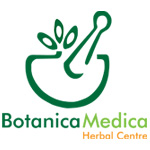PCOS is not the same for all women. Treatment must target the underlying cause and I’m going to give you some examples of why this is so important.
Don’t settle for just supressing the symptoms. It is critical you are treated as an individual to get the best possible outcome.
PCOS is an umbrella term for a set of symptoms, or a syndrome. As with most syndromes you need to meet a certain number of the criteria for diagnosis. Confusingly, the definitions for PCOS vary but the most common diagnostic criteria between definitions are:
– Androgen excess.
– Irregular or absent ovulation.
– Exclusion of other disorders that can result in menstrual irregularity and hyperandrogenism.
One of several possible underlying causes is insulin resistance and more recent conventional treatments include drugs to lower circulating glucose levels, such as Metformin. Insulin resistance must be addressed as it can lead to a pre-diabetic state and/or type 2 diabetes.
Another common treatment is to prescribe some form of hormonal birth control to supress the excess androgen activity, however there is evidence emerging to suggest that various forms of hormonal birth control negatively affect blood glucose regulation and insulin sensitivity (i.e. makes insulin resistance worse).
A naturopathic approach may include:
– Investigating the underlying cause(s) of the condition.
– Recommending dietary and lifestyle changes as a foundation to addressing the cause(s).
– Hormonal balancing.
– Addressing any identified nutritional deficiencies.
– Identifying and removing or minimising any other contributing factors (e.g. environmental or occupational toxins) that can contribute to such imbalances.
Let’s look at one common treatment scenario as an example of how the conventional approach may target symptoms but might not address the underlying cause:
Miss X has been diagnosed with PCOS and the underlying cause of Miss X’s PCOS is insulin resistance. She is prescribed hormonal birth control to supress excess androgens and reduce the symptoms she is experiencing. Is the treatment addressing her insulin resistance? The answer is no. What do you think will happen, many years down the track, when Miss X decides she’d like to start a family and wants to come off the prescribed hormonal birth control? Has the underlying cause of her PCOS been addressed? No it has not.
In addition to emerging evidence between hormonal birth control and insulin resistance that we already touched on, most of us know that weight gain is a possible side-effect of hormonal birth control. Guess what…weight gain is also an independent risk factor for type 2 diabetes.
Now you understand a little about insulin resistance driven PCOS, but what about the women diagnosed with PCOS who do not have insulin resistance? Are the causes of their androgen excess all the same and require the same treatment? The answer is no.
Excess androgens can be secreted from the adrenal glands or the ovaries (in women), and the treatment differs according to the source of the excess androgens. Hormonal balancing is one of the strength areas of herbal medicine and your naturopath can employ this, along with dietary and lifestyle changes, to help you take back control of your hormones and get the best possible outcome for you.
These are just some of the examples of how PCOS may differ in the individual. I hope my article has helped you understand why it is so important to address the underlying cause, rather than mask the disease by supressing the symptoms.
At Botanica Medica Herbal Centre we always seek to address the underlying cause of your health condition and you can be sure we will always treat you as an individual.
If you think someone you care about would benefit from this information, please share it as a private message.
References list available on request.
Rachel Harvey
Naturopath and Herbalist
Botanica Medica Herbal Centre Phone 8271-1827

Recent Comments